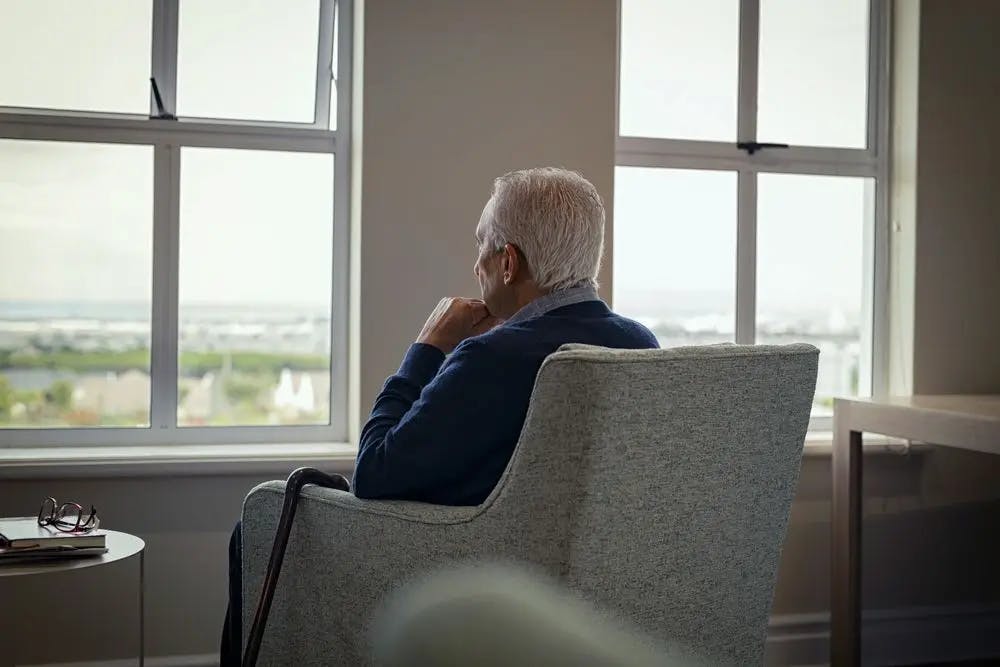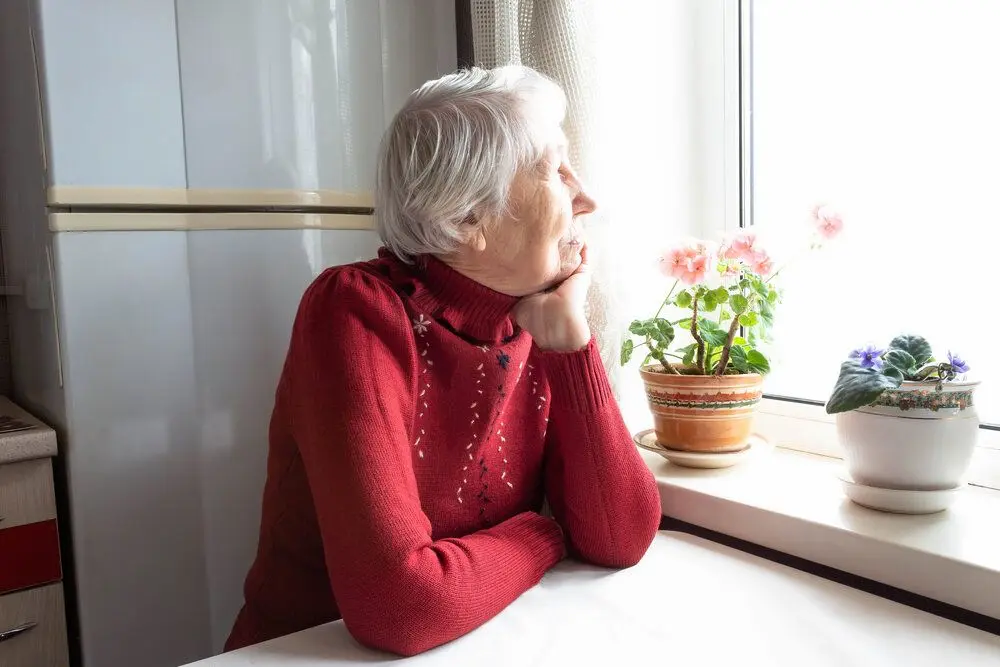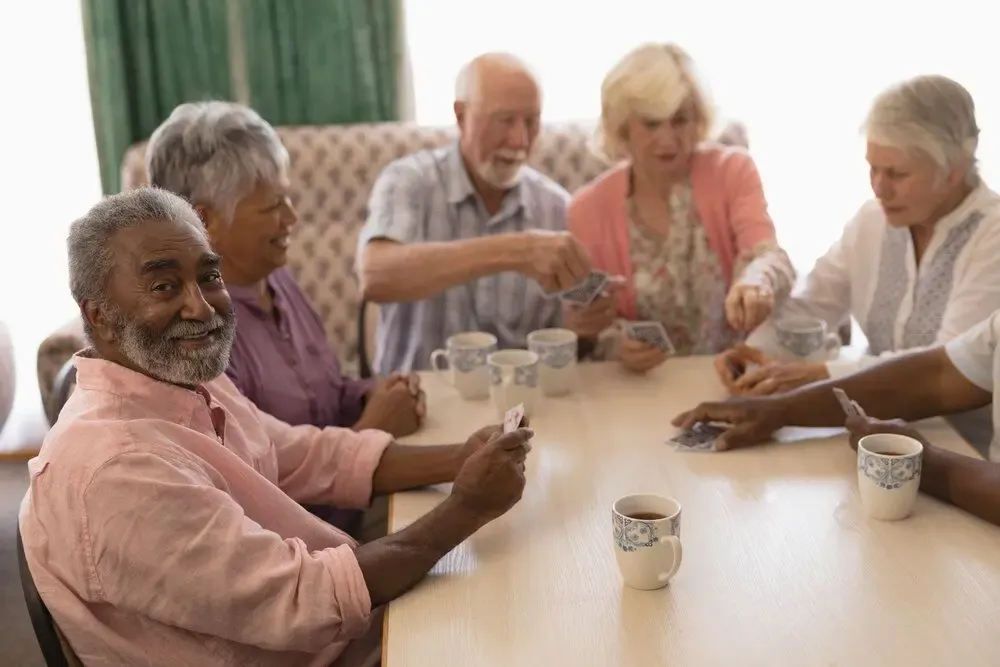A Sense Of Isolation: Tips And Solutions

Estimated Reading Time: 9 minutes
We all feel lonely from time to time - but what do you do when you consistently feel lonely and isolated?
Unfortunately in the UK, there are hundreds of thousands of elderly people who feel lonely and cut off from society.
Human beings need social interaction to be happy and healthy, but as you get older you might find that you spend more time alone; whether that’s due to family members living far away, or friends moving or passing away.
In this article, we look at tips and solutions for dealing with feelings of loneliness.
Spend time with a friendly carer in your home
Browse the best companionship care in your area.
In this article on isolation:
- Social isolation
- Loneliness
- Emotional isolation
- Social isolation and loneliness in the elderly
- Social isolation in care homes
- Causes of isolation
- Physical distancing
- Effects on physical and mental health
- Combatting social isolation
- Therapy and treatment
- What to do if you're feeling isolated
What Is A Sense Of Isolation?
As human beings, we are typically social by nature, and forming high-quality relationships with other people has been shown to help us live longer and healthier lives. Talking, joking, laughing, sharing experiences and even arguing or disagreeing are all forms of social interaction that help us to socialise with others.
A sense of isolation refers to a lack of these social contacts and social interaction. It’s good to spend some time alone, but social isolation refers to unwanted isolation.
Social Isolation
Social isolation is an absence of social relationships. This is different to solitude, which simply describes the state of being alone.
Research suggests people who have unhealthy social isolation may show the following signs:
Avoiding social interactions that they used to enjoy
Cancelling social plans
Spending long periods of time alone
Not leaving the house
Feeling apprehension, anxiety or dread at the thought of social activities
Experiencing anxiety or panic attacks in social interactions
A lack of meaningful relationships
Losing social or professional relationships
Elderly people are more at risk of social isolation, due to changes in social connections and health that occur naturally with age. We often find that elderly people are also more reluctant to reach out for help when this happens, often due to pride.
Isolation can cause mental health issues such as depression.
Loneliness
You may think that loneliness is the same thing as social isolation, but in fact the two are slightly different. Loneliness refers to the feeling of being alone or separate from others. You can feel lonely at any time, even in large groups of people - or alternatively, you can live alone but not feel any loneliness.
When you feel lonely, you will crave social contact. Emotions associated with being lonely can include sadness, grief, anger and misery.
Loneliness can get so bad that it causes emotional pain, or cause people to feel threatened by or mistrustful of other people. If someone is alone for too long, it can change their perspective of the world or even cause suicidal thoughts.

Emotional Isolation
You may also have heard of a term called emotional isolation. Emotional isolation happens when someone is unable or doesn’t want to share their emotions with others.
People who do not receive adequate emotional support may report feeling numb or misunderstood. This can happen as a result of prolonged social isolation.
Social Isolation and Loneliness in the Elderly
Although anyone can experience social isolation and loneliness, it is more common in certain people, including the elderly.
Elderly people tend to have fewer social connections, so a visit to the doctor or an appointment with a home health nurse might be the only social encounter they have in a week; especially if they live on their own.
Elderly people’s friends and family might not even notice that their loved one has become lonely, due to having their own busy lives to lead.
However, if you have an elderly parent or grandparent who lives alone, it’s really important to check in with them regularly - or if you can’t, arrange for home visits or home care.
Social Isolation in Care Homes
Unfortunately there is often a link between social isolation and care homes. This is because when someone moves into a care home, they experience a huge life change - especially if the care home is far away from their familiar setting and friends.
For this reason, care homes should make social interaction their number-one priority; offering plenty of one-to-one care for residents, taking time to speak to each resident and listen to what they have to say, and putting on a full and varied activities and event programme to keep residents entertained.
Joining in with exercise classes, singing classes or gardening clubs is a great way for care home residents to make friends and socialise regularly.
Sometimes opting for live-in care can help to prevent social isolation, as the person in question will have one-to-one assistance available to them 24/7.
Live-in care makes it easier for the person to form a bond with their carers, giving them a sympathetic ear and someone to listen to their stories, thoughts, opinions and answer their questions.
Live-in care does of course mean that the person doesn’t have to move away from their network of family, friends and pets.
What Are The Causes?
People can become socially isolated or lonely for many reasons, some of the most common being:
Separation from friends or family
Loved ones becoming ill or passing away
Losing mobility and ability to leave the house
Physical challenges or mental disabilities
Problems with hearing or vision
People may also be at greater risk of social isolation due to language barriers, discrimination or limited social support.
Physical Distancing
During the COVID 19 pandemic, health considerations, quarantining and the need to practice physical distancing meant that many elderly people felt isolated and alone as a result.
Those living alone had to wave to friends and family through open windows, while care home residents missed regular visits from their loved ones.
Instead of in person visits, people picked up the phone, sent emails, joined video calls or sent letters to stay in touch with their loved ones in an effort to help them feel more connected.
Studies have shown that physical contact with others helps to activate processes in the brain that reduce discomfort and even physical pain.
Similar studies found that loneliness is a sort of internal alarm that signals to us that we need to connect with people and make social ties. So during the pandemic, it’s unsurprising that physical distancing caused many people to feel lonely.
It’s not just the pandemic that had an effect on how lonely we are either - social media and increased stress and anxiety in daily life are also believed to be having a significant impact on our isolation and mental health.
Effects on Physical and Mental Health
Social isolation and loneliness can have a devastating effect on our physical health, including:
Higher levels of stress hormones
Greater risk of high blood pressure and heart disease
Obesity
Weaker immune system
Some of the effects on our mental health include:
Low mood
Depression
Anxiety
Social anxiety
Low self-esteem
Cognitive decline
Dementia
Those who are lonely or socially isolated are often more likely to not exercise enough, eat unhealthy food, drink too much alcohol, smoke and sleep badly, all of which can trigger more serious health conditions. These people are also more likely to neglect everyday tasks such as cleaning, cooking, taking medication and life admin.
As mentioned earlier, emotional pain caused by loneliness can even lead to chronic inflammation in the body, as it activates the same stress responses as physical pain. If left untreated, this inflammation can increase the risk of developing a chronic disease due to their reduced immunity.
In more serious cases, elderly people who have been for a long time may develop anxiety disorders, delusions, PTSD (post-traumatic stress disorder) or hallucinations - and loneliness has even been associated with death in extreme cases.
How To Combat Social Isolation

The best way to combat social isolation is through plenty of interaction with other people. Whether that’s seeing friends and family, joining a local community group or signing up to a service to speak to someone on the phone a few times a week, talking to people or being with them is a sure-fire way to end loneliness.
It also helps to practice general self-care, including washing, eating healthily, exercising daily and getting a healthy amount of sleep (ideally seven hours or more each night). If you have hobbies that you enjoy doing, make time to do them; whether it’s yoga, puzzles or reading. If you don’t have a hobby, why not find a new one!
Social interaction doesn’t always have to happen in person - if you have family and friends who live far away, emails, Skype or Zoom, text messages, social media and sending handwritten letters are all good ways to stay in touch.
Therapy and Treatment
When you’re feeling lonely, speaking to a registered counsellor or therapist can be really helpful. Therapists offer lots of different types of therapy, so will assess you and your unique situation to work out the best plan of action for you.
Speaking to a therapist once a week or once every couple of weeks can help you feel more connected socially, as well as giving you reassurance about your situation. You and your therapist will discuss how you’ve been feeling and sometimes learn techniques that will help you to manage your feeling of loneliness.
If you feel that this is something you want to do, you can get free psychological therapy like cognitive behavioural therapy (CBT) on the NHS, or ask your GP to refer you. You can also refer yourself directly to a psychological therapies service without having to get a referral from your GP.
What To Do If You Are Feeling Isolated
If you are feeling isolated or lonely, it might help to speak to health professionals like your GP who in turn should refer you to a mental health professional.
If there have been any major life changes, such as a loved one passing away, it’s useful for your doctor to be aware so they can make the best decisions for your physical and mental health.
Some useful services you can use include The Silver Line, Independent Age, Age UK, or Friends of the Elderly. These are all helpline services for elderly people which offer weekly or fortnightly calls from volunteers to help combat loneliness.
Finally, some tips for beating isolation and giving yourself a mood boost include:
Regular exercise
Relaxing activities like reading and listening to music
Doing enjoyable hobbies
Setting a routine and sticking to it to create structure in your day
Eating healthily
Sleeping enough
Talking to friends and family on the phone or via text
Reading the news and staying informed about what’s going on in the world



